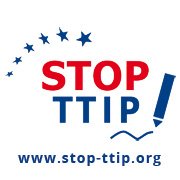TTIP: Trick of the Trade or Threat to Democracy?
Very few people seem to be aware of the Transatlantic Trade and Investment Partnership (TTIP), even though EU and US representatives have been negotiating over it since July 2013.
TTIP is a trade agreement that aims to grow trade between the two continents by eliminating tariffs and making their regulations more compatible. People are probably unaware of it because negotiations have been conducted very secretively, so newspapers haven’t had much to write about on the topic.
Benefits for Trade
Research carried out by the Centre for Economic Policy Research in London suggests that the EU’s economy could benefit from TTIP by €119 billion every year. It is likely that Ireland’s economy would benefit from this trade agreement more than other EU countries, as according to the European Commission more than 14% of all US investment in the EU has gone to Ireland. This is a huge percentage given that Ireland only accounts for 1% of the EU’s population.
European Commission figures also show that the US is the biggest goods export market for Ireland, worth €18.4 billion in 2013. This is why the Irish Government made commencing TTIP negotiations a priority during their presidency of the Council of the EU in 2013.
Concerns for Democracy
With the exception of Russell Brand ranting about it on his YouTube series, TTIP has gotten very little coverage. But despite the lack of publicity and the apparent benefits for the European economy, more than 1.5 million citizens throughout the EU have signed an online petition Stop TTIP; this includes 9,000 Irish people.
This level of opposition has been created by concerns over the effect the agreement could have on European food standards and environmental laws, as well as the implementation of Investor-State Dispute Settlements (ISDS), which can affect democracy and public services. Many groups have raised concerns over these issues including trade unions, human rights groups and environmental groups.
The European Commission recognised the high level of opposition to ISDS after the very first round of negotiations and has since consulted the public on the issue. ISDS is a special mechanism in many trade agreements for dealing with clashes between corporate interests and public interests. In the US these disputes are settled in undemocratic, private tribunals and arbitrated by anonymous lawyers. The public court system does not play any role.
This element of TTIP has many anti-water charge campaigners up in arms because in 2012 French company Veolia, which is installing water meters in Ireland, used the ISDS mechanism to sue the Egyptian government for raising the minimum wage and affecting the company’s profits. As a result the Egyptian government decided not to raise the minimum wage. Those opposed to TTIP argue that including ISDS in TTIP is undemocratic, because big American and European corporations can sue countries for policy decisions like these.
Well over 900,000 people living in Germany have signed the petition to stop TTIP, which is much higher than in any other EU country. This opposition is possibly the result of three different energy companies suing the German government for phasing out the use of nuclear power.
Another example is in Canada, where the government is being sued for $250 million (Canadian) by Lone Pine Resources Inc. for banning shale gas extraction, or fracking, in Quebec. The Environmental Pillar, which is a coalition of 27 Irish environmental NGOs, is opposed to TTIP as it fears the agreement would allow companies banned from fracking in Ireland to take legal action against the state.
However, TTIP negotiators argue there are already 1,400 bilateral-investment treaties associated with the EU, which allow ISDS.

Lori Wallach, director and founder of Global Trade Watch, commented on TTIP for German television programme Report Munchen: “It is a push down agreement; it is to push down the higher standards on either side of the Atlantic.” She believes the trade agreement will result in a decline in European food standards, European consumer privacy standards and American financial regulations, which are more restrictive than Europe’s since the financial crisis of 2008.
But negotiators of TTIP, including Minister for jobs, enterprise and innovation Richard Bruton, believe that the concerns over the trade agreement are simply misconceptions. The European Commission’s website states there is no need for concern over European food standards as the current law on GMOs and hormone-treated meat won’t change.
Cecilia Malmström, European Commissioner for trade, said: “The European Commission would never even consider an agreement which would lower our standards or limit our governments’ right to regulate”.
Opposition to TTIP
Despite all these assurances and the promise of economic growth and jobs, opposition to TTIP is growing. It demonstrates the distrust many European citizens have for the European Commission, or perhaps the US.
This is to be expected when negotiations are so secretive. Only negotiators and security-cleared advisors can read and comment on draft documents. These advisors are stakeholders, mostly corporate representatives, and they can view drafts and include their input while others cannot.
The European Commission is trying to make TTIP negotiations more transparent, but a press conference in Brussels to conclude the eighth round of talks earlier this month was full of jargon and yielded few concrete facts about the treaty. The two chief negotiators of the agreement, Ignacio Garcia Bercero and Dan Mullaney made it clear that talks will be sped up this year. Mr Garcia Bercero, the EU’s chief negotiator, commented on the ISDS before he was asked, “Of course we have not been discussing the investment protection and ISDS since, as you know, we are still in the consultative process on this topic.”
The European Commission is often criticised for its democratic deficit and its ability to be lobbied, and there is no doubt that organisations have been lining up on both sides of the Atlantic to ask for things to be included in TTIP.
The European Commission has decided to disregard the petition signed by 1.5 million Europeans throughout the EU. The petition was part of the European Citizens’ Initiative, but was rejected because these petitions can only lead to the introduction of new legislation or the changing of an old law, not the prevention of legislation which is being negotiated. TTIP could not be challenged in this way until it is a law, and then it may be too late as this policy change would affect trade and could open the EU up to being sued for billions through ISDS.
However this petition is still a strong message to send to the Council of Ministers and the European Parliament, and they will both have to approve TTIP when it is finalised.
More Information
For those who would like to know more about the concerns that TTIP raises, Stop TTIP’s reasons are here. TD for Dublin South-Central, Joan Collins, will also be hosting a public meeting on the issue in Wynn’s Hotel on Abbey Street. The President of the TEEU, Frank Keoghan, and Dublin-based Russian Economist, Constantin Gurdgiev, will be speaking. For those of you who would like more information about the benefits of TTIP, here is the European Commission’s website.
Images from europa.eu and stop-ttip.org.

